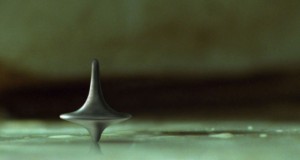God hates fangs. Or so it says on a diner’s sign in the opening credits of the HBO series True Blood. However, vampires, zombies, werewolves, orcs, elves, and all manner of the magical and fantastic are all the rage in popular media. Fantasy books like The Lord of the Rings series, the Harry Potter series and the Twilight series kick off massive commercial enterprises in film and games, and signal to the rest of the commercial entertainment industry that all your apps belong to fantasy. To keep things interesting, Zombies are now genre-bending with the best of them, working their way into the classics such as Seth Grahame-Smith’s Pride and Prejudice and Zombies and also dramatic romance, such as Isaac Marion’s Warm Bodies.
Now I’m not going to suggest that this should all end. Far from it. It was worse when neither fantasy nor science fiction had much traction in popular culture. Fantasy is good. I simply propose that science fiction is better.
And that it deserves more than simply one tenth the space that one sci-fi/fantasy publishing insider described to me as the balance between commercially viable sci-fi and fantasy projects. However, commercial reality is hard to argue with. As large-scale entertainment properties become more dependent on mass appeal, these decisions are increasingly driven by recent data. This doesn’t take into account decades of prominence that certain genres experience, and simply wax and wane according to undiscovered grand unified theories.
Science fiction for example had a golden age in the 1950s and 1960s, with creators like Asimov, Clarke, Roddenberry, and Herbert inventing the ideas of robotics, geosynchronous satellites, and the geriatric spice Melange. Science fiction enjoyed a second renaissance from 1977 to 1987 on the silver screen, with Star Wars, Alien, E.T., Blade Runner, and RoboCop presenting thrilling entertainment. While science fiction is literally fiction based on science, the genre has the ability to comment on the modern world through metaphor. Asimov’s exploration of robotics highlighted distinctly human frailties. Star Trek challenged the Vietnam War, the Cold War, and racism. RoboCop scathingly satirized corporate America. But then other genres rose to prominence.
Today, it’s all about fantasy. Or is it? The recent Battlestar Galactica TV series under Ron Moore’s guidance showed an ability to thrill and yet challenge the Iraq War, Abu Ghraib, and torture, when the only other American TV show doing so was The Daily Show with John Stewart. Plus, the box office success of J.J. Abrams’s rebooted Star Trek film suggests a willingness among the population to reconsider Golden Age storytelling.
Granted Paramount Pictures has this evergreen franchise to rely on, but the example still stands. James Cameron presented another epic science fiction feature Avatar with a commentary on the exploitation of indigenous people for their resources. Perhaps a bit on the nose for connoisseurs, but nonetheless exceedingly resonant with audiences. The videogame studio BioWare released Mass Effect 2, a sprawling and brilliant science fiction role-playing game, a game genre previously dominated by swords and sorcery themes. And most recently, there’s Inception. There aren’t any robots, aliens, or spaceships, but I’m still claiming this one for our team. Now here is a piece of science fiction that challenges you to unravel it, and reconsider the validity of the world as you perceive it. These puzzles have always fascinated me, and I’m glad we see films like this such as The Matrix and Total Recall on at least some kind of regular basis. The concept here is fundamental, in that it forces us to be willing to reconsider our world based on new facts and logic, something that our increasingly entrenched political dialogue could use a bit more of.
Based on all this, one could conclude, as I am in fact concluding, that science fiction is back. We have our recent data. The planets are aligned. We’re ready to take back our turf, even on the indie book publishing level. So all you vampires, zombies, wizards, and elves, raise your shields.


Comments on this entry are closed.